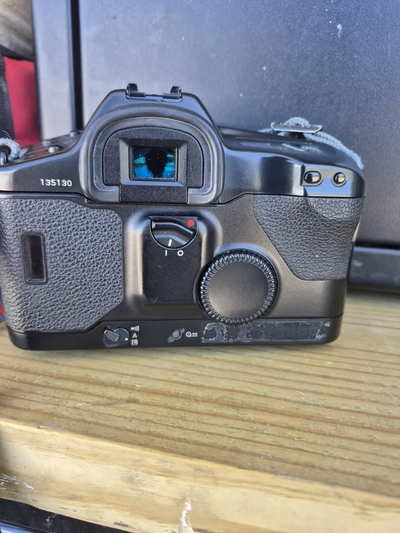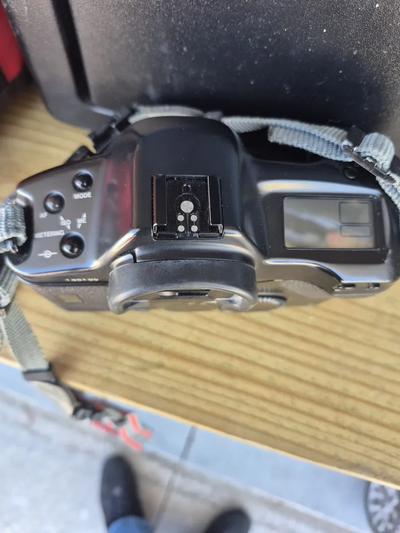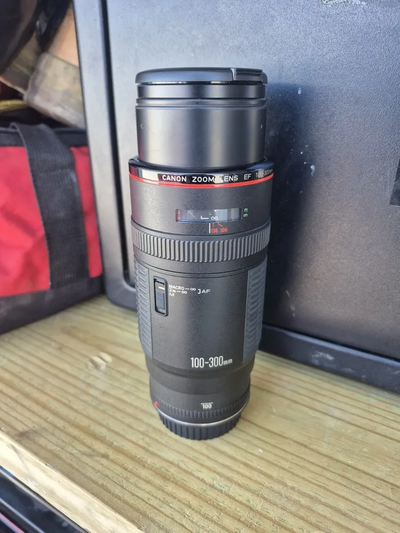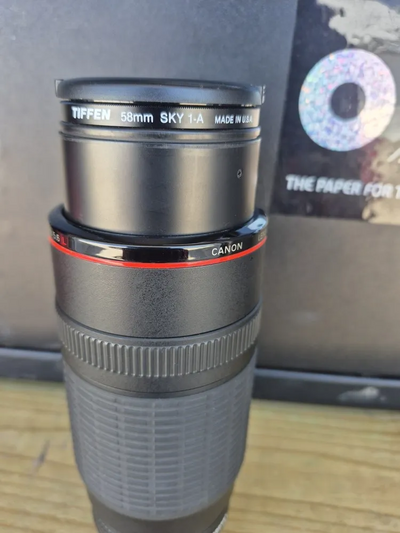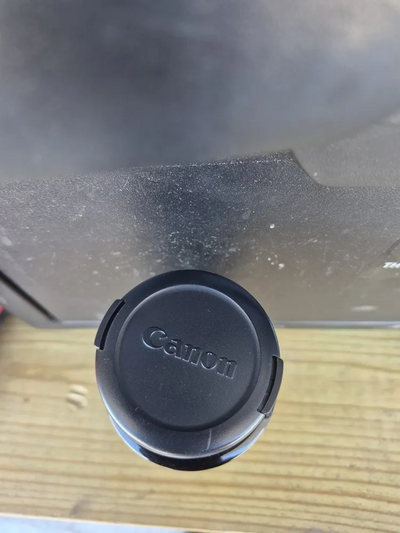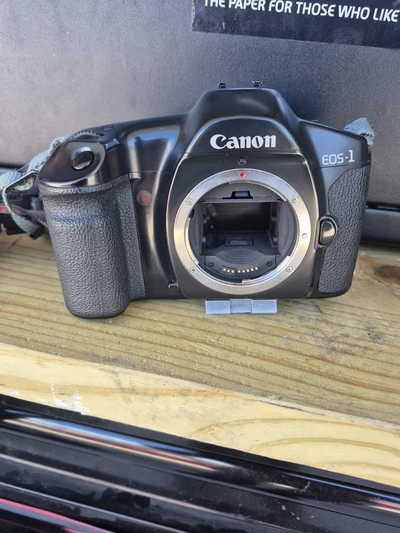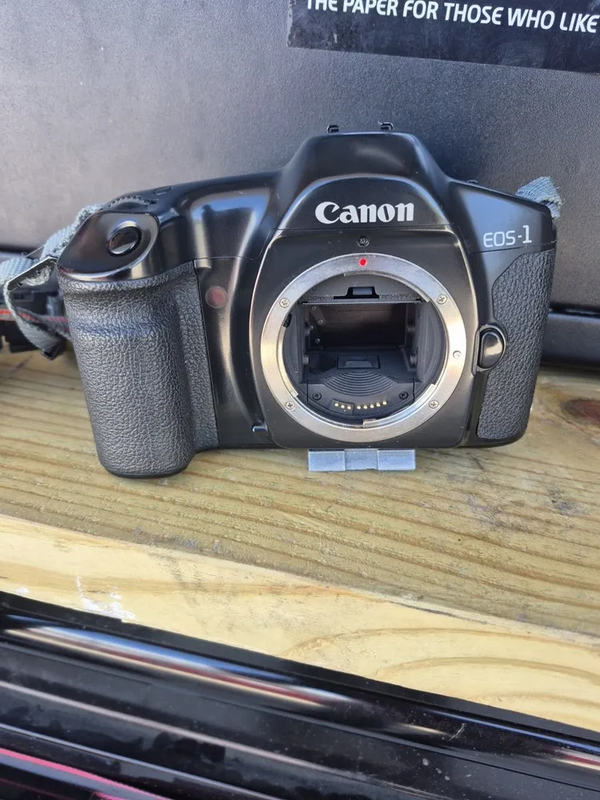
Canon 1
| Brand | Canon 1989 |
| Model | EOS-1 |
| Released Year | 1989 |
| Type | Digital Cameras |
| Series | EOS |
| Color | Black |
| Status | Discontinued |
Quick view
Overview
The Canon EOS-1 is a 35mm film SLR camera designed for professional photographers, launched in 1989. It introduced a durable magnesium alloy body with weather sealing for enhanced reliability. The camera featured Canon's innovative autofocus (AF) system with multiple AF points, facilitating precise focus tracking. It employs the Canon EF lens mount, supporting a wide range of interchangeable lenses. The built-in motor drive supports film advance speeds up to 5 frames per second, suitable for action photography. Powered by a reliable battery system, it offers full manual and automatic exposure modes with a comprehensive metering system.
Specifications
| Series | Canon EOS |
| Type | Digital SLR |
| Screen Size | 3 in |
| Manufacturer Warranty | 1 Year |
| Color | Black |
| Model | Canon EOS-1 |
| Connectivity | USB |
| Features | 1080p HD Video Recording, Auto Focus, Built-in Flash |
| Country/Region of Manufacture | Japan |
| Battery Type | AA, 2CR5 |
| Camera Type | 35mm SLR film camera |
| Lens Mount | Canon EF mount |
| Autofocus Points | Multiple AF points |
| Continuous Shooting | Up to 5 frames per second |
| Body Material | Magnesium alloy with weather sealing |
| Flash | No built-in flash |
| Power Source | Battery (specific model varies) |
Images
Key Advantages
The EOS-1's robust construction ensures durability for rigorous professional use. Its advanced autofocus system enhances accuracy and speed when capturing moving subjects. Compatibility with the extensive EF lens lineup provides versatility across photography styles. Fast motor drive allows continuous shooting up to 5 fps, benefiting sports and wildlife photography. The comprehensive exposure metering delivers reliable exposure in diverse lighting conditions. Its ergonomic design improves handling and operational efficiency during long shooting sessions.
Limitations
Being a 35mm film camera, the EOS-1 lacks digital image capture and storage capabilities. Autofocus technology, while advanced for its time, is less sophisticated compared to modern digital cameras. The camera's weight and size can be bulky relative to contemporary compact models. Film loading and processing require additional time and cost compared to digital workflows. Limited ISO flexibility depends on film choice rather than in-camera settings. No built-in flash, requiring external flash units for low-light photography.
FAQ
What type of camera is the Canon EOS-1?
The Canon EOS-1 is a professional-grade 35mm single-lens reflex (SLR) film camera.
When was the Canon EOS-1 released?
The Canon EOS-1 was released in 1989.
Does the EOS-1 support autofocus?
Yes, the EOS-1 introduced Canon's advanced autofocus system with multiple focus points.
What lens mount does the EOS-1 use?
It uses the Canon EF lens mount, compatible with a broad lineup of lenses.
Is the EOS-1 a digital camera?
No, the EOS-1 is a film camera and does not have digital capture capabilities.
What is the continuous shooting speed of the EOS-1?
The EOS-1 supports continuous shooting up to 5 frames per second.
Is the Canon EOS-1 still in production?
No, the EOS-1 has been discontinued.
Disclaimer
The content on is provided for general informational purposes only. We do not guarantee the accuracy, completeness, or reliability of any information, specifications, or visuals presented on the site.
is not responsible for any content, images, or data uploaded or shared by users. Users are solely responsible for the content they submit.
We may include links to third-party websites for convenience. We do not endorse or take responsibility for the content or policies of any external sites.
Use of the site is at your own risk. Always verify critical information independently before making decisions based on content from this website.

